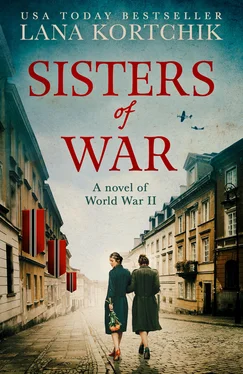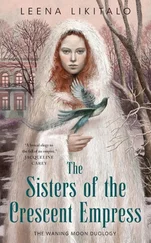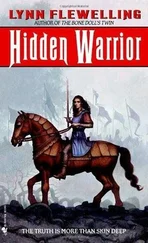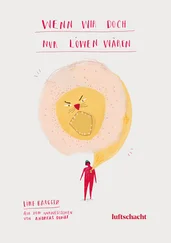Nikolai left the room. Mother watched him until he disappeared around the corner. There was no anger in her eyes, only fear.
‘Natasha, go with your grandmother.’
‘Where is Babushka going?’
‘She’s taking our radio to the gendarmerie.’
The thought of seeing the Nazis up close didn’t appeal to Natasha one bit. ‘Can I help Nikolai in the kitchen instead? Someone has to make sure he doesn’t eat everything.’
Mother glared at Natasha but didn’t say anything.
‘Why can’t Papa go with Babushka?’ demanded Natasha.
‘Suggest it to your father if you feel like it.’
Natasha didn’t feel like it.
*
It was after midday when Natasha and her grandmother set out in the direction of the gendarmerie that had just been established on the corner of Proreznaya and Kreshchatyk. Natasha moved slowly, reluctantly. She didn’t want to leave the house because the streets, just like the people, had become alien and unfamiliar. In a small bag over her shoulder, she carried their radio receiver wrapped in an old newspaper. The day was too beautiful, the sun too bright, and the autumn leaves had just started to turn a dark shade of brown. Grandmother said, ‘What a wonderful fall it could’ve been.’
On Pushkinskaya Street they ran into one of their neighbours. Bird-like, yellow-haired, bordering on skeletal, Zina Kuzenko looked extremely pleased with herself.
‘Are you going to the gendarmerie, Zina Andreevna?’ asked Natasha.
‘Oh, no,’ answered Zina. ‘I’m Ukrainian, remember?’
‘So?’
‘So, I can keep my radio. And my food.’
‘I don’t understand,’ said Grandmother. ‘Why are you allowed to keep them?’
‘Germans treat us as a privileged nationality. After all, they are here to liberate us from the Bolsheviks.’ She rubbed her hands, looked around, lowered her voice and added, ‘As far as I’m concerned, they’re welcome here. We’ve had enough of the Soviet oppression.’
‘How can you say that, Comrade Kuzenko?’ Grandmother looked horrified.
‘I am telling you, this might be a blessing in disguise. Germans are a civilised nation. They will bring the order and prosperity that the Bolsheviks never have. They will restore electricity and running water. There will be more food and we’ll be able to buy European clothes. We won’t have to queue for hours to get a loaf of bread.’
Grandmother said, ‘Hitler will destroy us like he’s been destroying the Poles, like he’s been destroying the Czechs.’
‘Honestly, Larisa Antonovna.’ Zina always addressed Natasha’s grandparents by their first and patronymic names, even though they had been friends for many years. Natasha suspected she was a little intimidated by them, especially since Grandfather had taught all of her children. ‘Hitler could never be as bad as Stalin.’
Natasha had heard hushed rumours that Zina’s brother had been shot by the NKVD, Stalin’s secret police, and that her parents-in-law had died from hunger during the famine of 1932. There were whispers about Ukrainian farmers surviving on bark and roots, while their fields produced abundant harvests that were promptly seized by Stalin’s henchmen, harvests that the farmers were forbidden to touch at the risk of a firing squad. But just like Hitler’s army on the streets of Kiev, Stalin’s atrocities were hard for Natasha to fathom. It was like something out of her grandfather’s history books, gruesome events that belonged in the Reign of Terror of the French Revolution, and not in their quiet and familiar Ukrainian reality. It was definitely never mentioned on the Soviet radio.
‘The Bolsheviks starved us and shot us, and now they want us to die for them in their war,’ said Zina. ‘I personally see nothing worth risking my life for.’
‘What a tragedy,’ said Grandmother. ‘What a tragedy for a citizen to wish for the defeat in war of her own country.’
‘Blame the Bolsheviks. We would rather live under Hitler than under Stalin. How much longer can we live in constant fear?’ said Zina. ‘You are a member of the Communist Party. How can you justify Stalin’s actions?’
‘The end justifies the means, Comrade. The state clothes us, feeds us, protects us from the enemy. All it asks for in return is loyalty and commitment. Is it too much of a sacrifice for you to make?’
‘No, Larisa Antonovna. The state demands our lives and in return drags us down to slavery. It’s serfdom, that’s what it is.’
‘You shouldn’t talk like that, Zina. God forbid anybody hears you,’ said Grandmother, shuddering.
‘Things have changed. The Bolsheviks are gone. We have nothing to fear now.’
Natasha wished she could cover her ears and not hear their conversation. How could Zina, whom Natasha had known since she was a child, welcome the enemy to Ukraine as if they were the long-awaited liberators? How could she rejoice, when the rest of the country was mourning? Natasha hoped Zina was the only one who felt this way, but then she saw a woman across the road welcoming German officers with flowers and a loaf of bread. Natasha wanted to run to the woman and tell her she should be ashamed of herself, but she didn’t. What difference would it make?
Natasha closed her eyes and tried to remember what her life had been like before 22 ndJune. She longed for the time when all she had to worry about was an argument with her sister and her university entrance exams. How trivial it all seemed now. Although it was only a few short months ago, it felt like a distant dream.
Shaking her head, Grandmother walked off. With an awkward wave to their neighbour, Natasha followed.
All the Soviet posters – in particular those depicting Hitler as a comical swastika-shaped figure – had evaporated as if by magic, replaced with placards that proclaimed, ‘Hitler is a hero and a saviour!’ Above the red university building, there was a white flag with a black swastika. When Natasha saw it swaying in the wind, she stopped dead in her tracks, her heart pounding. The flag screamed to Natasha that Kiev no longer belonged to her.
No glass was left in the university windows. It was nothing more than a ghost building, and Kiev was nothing more than a ghost town. Hardly any Kievans ventured out, but those who did looked uncertain and afraid. Nor, it seemed, did the invaders know what to do when faced with the local population. The Soviets and the Germans simply watched each other cautiously without saying a word.
And the Red Army was retreating further and further east, retreating irrevocably and irretrievably, away from Kiev and its inhabitants, away from the Smirnovs.
Occasionally, Natasha would notice German soldiers with cameras. They photographed the civilians, the burnt-out streets, the bombed-out buildings. She had never seen cameras such as the Nazis possessed. In fact, everything they had, their machinery, their equipment, their weaponry, was unlike anything she had ever encountered in her Soviet life.
‘Look at that truck, Babushka,’ whispered Natasha. ‘Could you imagine anything more sleek and shiny?’
‘That might be so but they won’t get to Moscow in their sleek and shiny truck. We’ll push them back where they came from before you even know it. Remember, we have what the Nazis don’t.’
‘What’s that?’
‘We have the heart. And soon they’ll learn that. They’ll learn the hard way.’
‘Not soon enough,’ whispered Natasha.
At the gendarmerie, the queue spilled all the way down Kreshchatyk. People were clenching their food and their radio receivers. One man brought a machine gun, one woman a live goat on a rope. Grandmother and Natasha joined the hushed group of people at the back of the queue.
A few hours later, a grim Natasha passed her radio to a grim German officer who barely glanced in her direction. Without the radio, there would be no more news from the front, no more connection to the outside world that still remained free from Hitler’s clutches, no more hope. Natasha felt more isolated than ever as they made their way home, down the streets that were teeming with grey uniforms.
Читать дальше




![О Генри - Сестры золотого кольца [Sisters of the Golden Circle]](/books/415415/o-genri-sestry-zolotogo-kolca-sisters-of-the-gol-thumb.webp)







